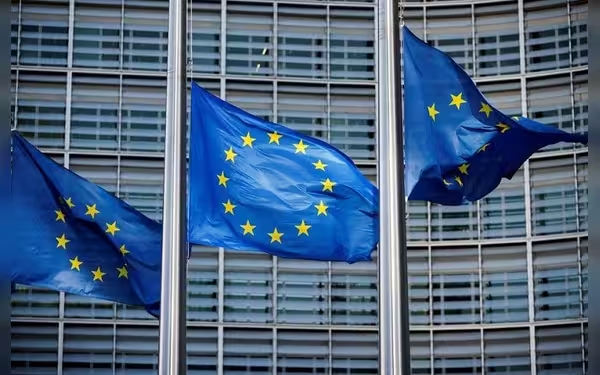Saturday, November 16, 2024 09:37 PM
EU Countries Subsidize Fossil Fuels by $45 Billion
- EU countries spend $45 billion on fossil fuel subsidies.
- Italy and Germany lead in fossil fuel vehicle support.
- Subsidies contradict EU's climate goals and sustainability efforts.
 Image Credits: tribune.com.pk
Image Credits: tribune.com.pkA study reveals EU countries subsidize fossil fuels by $45 billion, raising concerns over climate commitments and sustainability efforts.
In recent years, the debate surrounding fossil fuel subsidies has gained significant traction, particularly in the context of climate change and environmental sustainability. A new study by the consultancy Environmental Resources Management (ERM) has revealed that European Union (EU) countries are collectively subsidizing fossil fuels to the tune of $45 billion. This staggering amount raises questions about the commitment of these nations to reducing carbon emissions and transitioning to greener energy sources.
According to the study, Italy leads the pack, providing a hefty 16 billion euros in subsidies specifically for fossil-fuel company cars. This practice allows companies to offer vehicles as perks to their employees, which often come with substantial benefits. These benefits include offsetting consumer taxes and providing fuel usage advantages, making it financially attractive for both employers and employees.
Germany follows closely behind, contributing 13.7 billion euros in similar subsidies. The trend of subsidizing fossil fuel vehicles is not just limited to these two countries; it reflects a broader pattern across the EU where governments continue to support fossil fuel industries despite the pressing need for sustainable alternatives.
The implications of these subsidies are profound. On one hand, they provide immediate financial relief to companies and employees, but on the other hand, they hinder progress towards a more sustainable future. Critics argue that such financial support for fossil fuels contradicts the EU's climate goals and undermines efforts to combat global warming.
As the world grapples with the consequences of climate change, it is crucial for EU countries to reassess their priorities. The funds currently allocated to fossil fuel subsidies could be redirected towards renewable energy initiatives, public transportation improvements, and other sustainable practices that benefit both the economy and the environment.
While the financial incentives for fossil fuel vehicles may seem beneficial in the short term, the long-term consequences could be detrimental to our planet. It is imperative for policymakers to recognize the urgency of the situation and take decisive action to phase out these subsidies. By doing so, they can pave the way for a cleaner, greener future that prioritizes sustainability over short-lived economic gains.













